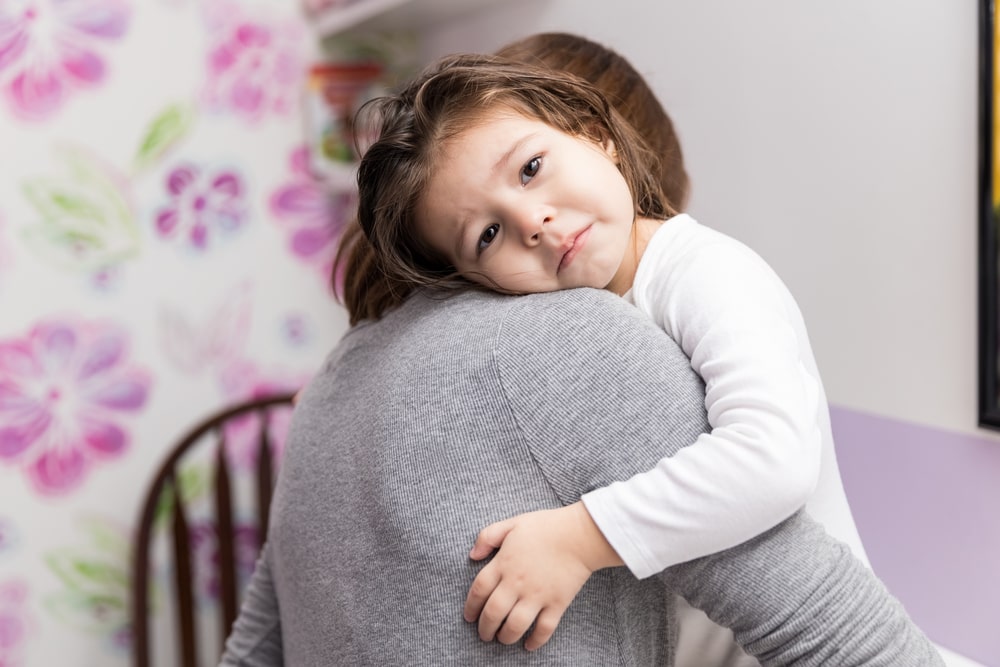We hear a lot about helping foster children adjust when it comes to fostering a child. It’s important to help them decorate the room and encourage them to bond with your bio-kids.
The part that a lot of people and websites seem to really miss the boat on are the bio-kids, though.
While they might eagerly want to help another child or have a younger sibling, it doesn’t take long for reality to come crashing down when behavioral issues surface and they realize that they have to share everything, including their parents.
There are quite a few ways that you can help a child by fostering without turning your kid’s life upside down, though.
Encourage Biological Children To Help With The Process
Fostering a child, and preparing your home for foster children, is a process. There are plenty of steps you’ll need to take, from deciding where they will sleep to making sure that they have something to wear. Try to involve your children in the process if you can.
Take Them Shopping With You
Before you foster a child, you’re more than likely going to want to have a few things for certain age groups. Some children come with clothes on their backs, and it can take a few days to receive assistance for clothing.
Because of that, most foster parents keep a few outfits in various sizes and for both boys and girls in the house. They can help you pick out clothing or baby gear if you would like to foster a newborn. Kids can also help you pick out shoes or socks.
While shopping, make sure that you make it a positive experience. You don’t want them to have negative associations with foster care before a child arrives at your house.
Plan The House With The Whole Family
[amalinkspro type=”showcase” asin=”1433821109″ apilink=”https://www.amazon.com/dp/1433821109?tag=mominformedcom-20&linkCode=osi&th=1&psc=1″ new-window=”true” addtocart=”false” nofollow=”true” sc-id=”4″ img-sizes=”399:500″ imgs=”https://m.media-amazon.com/images/I/418t3GACuhL._SL500_.jpg” link-imgs=”false” specs=”” btn-color=”#ff9900″ btn-text=”Check Price” alignment=”aligncenter” hide-prime=”0″ hide-image=”0″ hide-price=”0″ hide-button=”0″ width=”750″]Somebody Cares: A Guide for Kids Who Have Experienced Neglect[/amalinkspro]
When you foster a child, they’ll need their own room. Most agencies don’t allow your bio kids and non-relative kids to share a room. Discuss where the child will sleep.
In most houses, this is a spare bedroom. Even if it seems like common sense, discuss it with your children anyway. It will help them feel more involved in the fostering process.
Babies usually need a bit more than older children. If you have a swing or playpen, let your children decide where to put it in the living room. After they pick a location for the baby swing, don’t forget to tell them how much you appreciate their help.
Let Your Bio-Kids Take Them On A Tour
When your foster child first arrives, they’ll need to see the house. Ask your children if they would like to take them on a tour. Most younger children, in particular, enjoy this part.
You want to let them take the lead when giving the tour. If they forget to show them the bathroom, gently remind them that they will need to know where to go to the bathroom at.
Discuss Fostering With Your Children Beforehand
View in gallery
Suddenly announcing that your family will be fostering and expecting everyone to jump on board is not the way to do this. In fact, it can breed resentment before a foster child ever walks through your doors.
Instead, approach the situation delicately, explain it well, and let your children have a voice.
Explain Why You Think Fostering Is A Good Idea
Some children understand why there are foster children, but to others, this is a brand new concept. They grew up in a loving home, so they might not realize that some children do not.
Don’t blame biological parents. Instead, simply tell your kids that some children need to live somewhere else while Children’s Services helps their parents.
You can also highlight the great things about your home and family. Let your children know that you think they are wonderful and that you can all contribute to providing a loving environment for a child that needs one.
Answer Questions They May Have
Ask your children if they have any questions. More than likely, they will be full of them. (That’s why it’s a great idea to put plenty of time aside for this conversation.)
They may ask simple questions about whether you will be fostering a boy or a girl. Other children, particularly older children, will want to know how it will affect them.
Be Honest With Your Kids
During this conversation, it’s important that you’re open and honest with your children. If you have no idea whether you’ll be fostering a boy or girl, tell them that.
Explain the role that social workers will have with the children, and let them know that eventually, the new member of the family will go back home. They need to know the details and understand that it’s temporary.
Listen When They Say No To Fostering
Some families need a break in between new kids. They need time to grieve. Other families simply decide that fostering is not for them. Some foster parents ask their children what they want, and when they say no thanks, they simply don’t foster for a while.
There are various opinions on this approach. While there are parents that say children should not get that much power in a household, I think they should in this situation.
Becoming a foster parent has a drastic impact on children, and can have a negative impact on the household as a whole when they are not on board.
Continue To Practice Open Communication While Fostering
View in gallery
Throughout the fostering process, including while a child is living with you, you’ll find that it’s not always a smooth ride. Just as siblings fight, so will your bio children and your foster child.
It’s important that you continue to communicate with all the children in the house in an open, honest manner. Make sure that you check in with your children periodically throughout the process.
Treat All Children Equally
Some people will instantly side with their biological children, but this isn’t the way to go about things with foster kids.
In fact, it can make them feel inferior. It will teach your children less compassion. You’ll also find that the foster kid doesn’t mesh as well with your family, which isn’t good for anyone.
All Kids Have The Same Rules
If your child has chores, so does the new member of the family. This also applies to things like routines, rules, and consequences. When a child gets a time out for a certain behavior, so do the other children.
Do not treat foster children differently because they went through a particular thing. It doesn’t do them any favors.
Give Foster Children A Say So
You need to encourage foster children to communicate just like you did your children in the beginning. Encourage them to speak up if they do not like something. You should also let them make decisions, too.
For example, you can have a family movie night and let them pick the movie. Ask them what type of clothing they like, and encourage them to decorate their room.
Be Realistic With Yourself, Too
It’s important that you realize what you’re getting yourself into when you commit to treating all children equally. Your foster child might not know how to do chores.
You have no idea if they have ever sat down in a timeout before, or had a bedtime routine. They are more likely to fight these changes. Because of this, it is going to take more time, love, and patience to do this.
View in gallery
Traumatized Children Often Have Many Different Ages Cognitively
When you think of a six-year-old, you imagine a child that always acts as though they are six years old. That is not the case with traumatized children. When working with traumatized children through fostering, you may discover that sometimes a child acts their age.
However, they may act significantly older or younger as well. This tends to vary, and you may need to adjust their chores and your expectations accordingly.
Avoid Changing Anything With Your Children
When you change things with your children, it can breed resentment. Something that might seem small to you can make the transition significantly harder on your child.
For example, not being allowed to play with playdough because the new toddler in the house eats playdough. Instead, strive to accommodate both children. In this situation, you could have playdough time together after the younger child goes to bed. Do not change things unless you have to.
Notify Them Of Any Changes In Their Routine
If you have to make changes to anything, it’s important to let them know beforehand. For example, explain that you won’t be picking them up from school one day and their father will.
Children might not like the change, but knowing about it beforehand can make it easier for them.
Emphasize Positive Changes That Come With Fostering
If there are only changes that children view as negative, they will view fostering as a negative experience. Try to make sure that they realize there are good changes too.
Let them know that since more children are doing chores, that means that they have to do fewer chores. Point out how awesome it is that they always have someone else to play with.
Don’t Take Time Away From Your Bio-Kids
View in gallery
If you always helped them with homework after dinner, you still need to do that. When your biological children feel that you are not spending as much time with them due to foster children that live in the house, they are bound to get jealous.
However, children can’t communicate that. Instead, they will act out. They may think that you don’t love them as much or wonder if a foster kid is replacing them in the family.
It’s best to prevent this from happening before it becomes a toxic situation. Spend the same amount of time with them as you did before. If you can’t for some reason, make sure that you explain it to them.
Tell them you missed spending quality time with them, and make it up to them later. This can guarantee that they don’t feel left out, and it will prevent both jealousy and resentment.
How To Help Bio Kids And Foster Kids Blend
Blending everyone together to form one large family takes a lot of time and effort. This effort should initially come from you as the parent, but will also need to come from the kids. That’s a part of the reason why it is so important that they do not resent each other, especially in the beginning.
Bonding Time Is Important
While it is important for you to bond with foster children, it’s also important for your kids to bond with them. This can help them adjust to having other children in the house. Spend time together as a family, and encourage children to do things like play games together.
Know That Children Bonding Takes Time
Children do not instantly bond with one another. In fact, no one will instantly bond with another person. Some days, it will feel like your efforts are pointless. They aren’t. Keep encouraging bonding and give them time. They’ll be closer than you thought possible over time.
Create Special Memories Together
View in gallery
Some families dedicate at least one day a week to spending time together as a family.
You will also want to take plenty of pictures with all of the children, plan special family outings together and make sure that all of the children feel welcome and included. When families share special moments together, they build a bond that can last a lifetime.
In Conclusion
Deciding to be a foster family is a big decision that most children are proud of. Making sure that they adjust and bond with their new family members will make the entire experience one remember for a lifetime.







